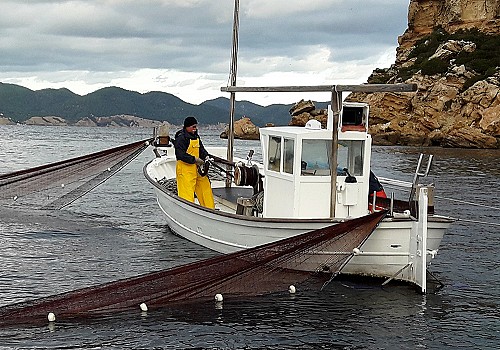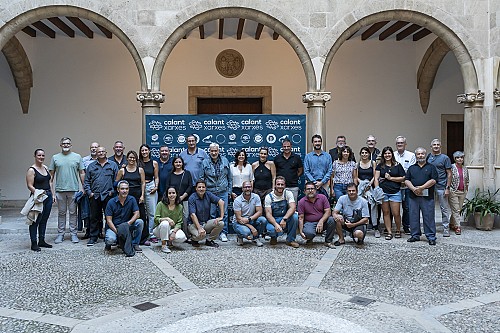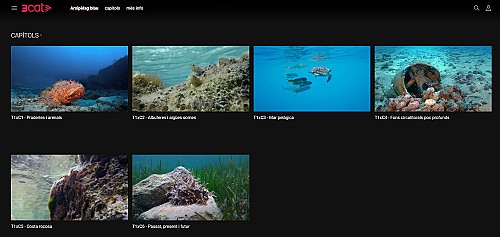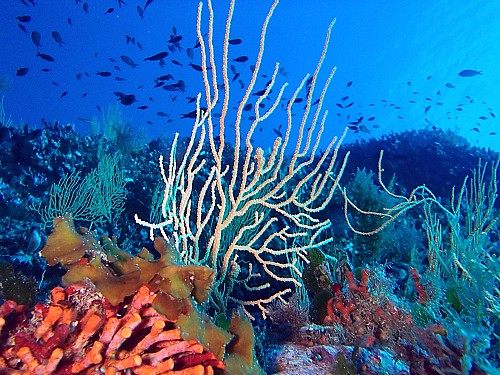Miquel Ortega: "Forward-looking fishers are environmentalists by obligation"
Published 24.02.2023
Share
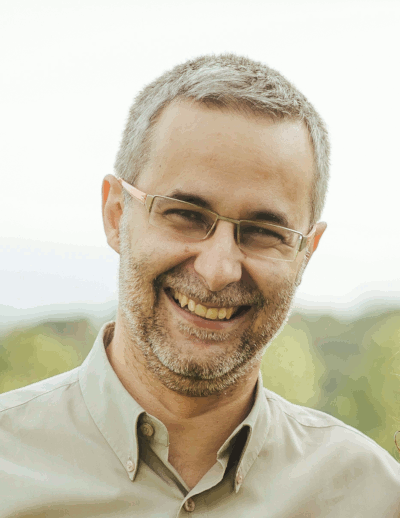
Related project
Miquel Ortega was born in Barcelona in 1974. He studied physics and received his PhD in environmental science. His speciality is ecological economics and political ecology in the marine field. His family on his mother's side is Mallorcan and he visits the islands whenever he can, at least once a year. Ortega feels emotionally connected to the island so he tries professionally to link his research to it, too. A month ago, alongside Beatriz Guijarro and Marta Coll, he presented the study "Who buys fish at the fish market in Mallorca?" .
Who buys fish from the fish market in Mallorca?
The main customers at the fish market are small and medium-sized fishmongers, who buy almost half of the fish sold. They are followed by the large supermarkets and fish wholesalers with almost 20% each, then in much smaller quantities, by a few restaurants and individual buyers.
Yet in Catalonia, for example, wholesalers buy much more at the fish market and fishmongers buy less. Each context is particular. We know that part of what fishmongers buy from the fish market also goes to restaurants. The same thing happens with wholesalers. But in what quantity? This has yet to be studied in detail. In the Balearic Island, we need a detailed study of how the fish caught in the islands are distributed through the various channels. This would be very interesting and would allow us to think of channels to revalue local fishing.
What turnover is generated by fishing?
In the Balearic Islands, the first sale is around €18.5 million, but this is only part of the activity generated by each kilogram of fish landed. Once the fish is first sold in the fish market, it can be sold on several times (e.g. from the fishmonger to the restaurant and then to the final consumer). Therefore, the business generated in the economy for each kilo of fish that arrives at the port is greater, but we don’t have accurate numbers. In other territories, each euro generated in the port can be multiplied by three or four in the economy as a whole.
Do we know how much fish caught by recreational fishers leaves Balearic waters ?
Here we have to differentiate between the recreational fisher who does things right, and the or the professional fisher who does not register all their catches. Some studies suggest that unrecorded catches are as much as 30% of the total catch and even more for some species. This is a big problem all over the world.
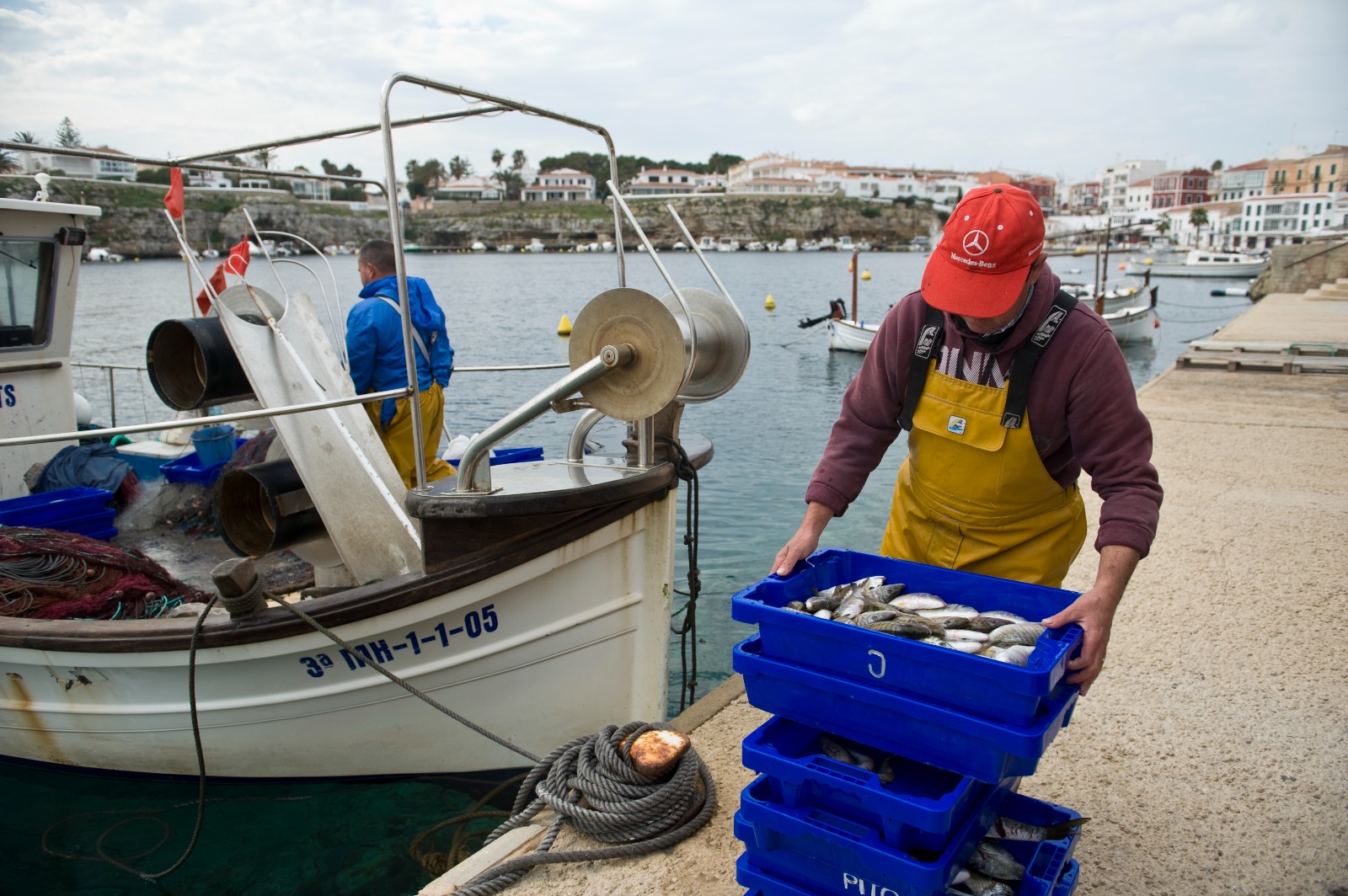
Fisher in Cales Fonts. Photo: David Arquimbau
Is it important to know how many fish come out of the sea?
Yes. Having accurate numbers of all the catches taken from the sea is essential to be able to manage the resource as profitably as possible, both for professional fishers and for other uses. If professional fishers do not register part of their catches, they are shooting themselves in the foot in the medium term. When it comes to aid and management, it seems that they are less active than in reality. And they can also be fined if they are caught. Because resources are limited, if the person fishing illegally is not a professional fisher, they are taking away the bread from those who want to earn an honest, professional living. In actuality, those who fish without registering their catches are stealing from all of us because the living beings of the sea are a common good.
According to the purchasing report that you published in January , the amount of fish imported from abroad and sold in Mallorca is 14 times higher than the amount of local fish. How do you interpret this data?
Mallorca is a very open economy highly dependent on foreign products. As far as local fishers are concerned, as the local product is in the minority, the price they can put on their product is determined by the price of the imported fish. At most, they might be able to charge a little more for being fresher, closer, etc., but they cannot price in an isolated way as was done years ago. This means that they cannot be left behind. For example, in the last decade in the Atlantic waters of the European Union, 45% of the stocks have been fished sustainably to 70%, and the amount of fish that can be caught is recovering, while in the Western Mediterranean, the stocks fished sustainably do not even reach 20%. This makes Mediterranean fishers in open environments such as the Balearic Islands less and less competitive because in the Atlantic, as stocks recover, they have to make less effort to catch each kilo of fish and this means lower costs.
In open markets, forward-looking fishers are ‘environmentalists by obligation’ because they are aware that if stocks don’t recover, they will find it increasingly difficult. If we draw a parallel, the situation is similar to that faced by car factories and the change to electric vehicles. They know that they have to transform and move from combustion to electric vehicles. This involves greater effort for workers and entrepreneurs, but as Javier Pacheco, general secretary of the National Workers' Commission of Catalonia once said to his colleagues in the car factories: Either we make an economic transformation to take into account the ecological reality or ‘we will become the mourners who accompany the coffin to the cemetery.’ I don’t think we can afford this for Balearic fisheries. Environmental sustainability and economic viability go hand in hand: If we do not improve environmentally we are out of the market.
When we eat fish, do we have enough information about what we have put on our plate?
It is very variable. When we buy fish, the labelling legislation obliges us to give the buyer a lot of information: when the fish was landed, from which area, with which fishing gear, etc. But the labelling obligations are not always complied with at the points of sale. Sometimes the consumer is deceived and sold what is not. The level of commercial fraud is still too high in this sector; I wish there was stricter surveillance.
There are also more and more interesting initiatives that try to provide information beyond what is strictly obligatory, for example, explaining how the boat is used to fish, suggesting dishes linked to the product, and recommending how to reduce waste. These proposals aim to develop a future line of ‘cultural food of proximity’ but they are still very much in the minority.
When we look at it as consumers in bars or restaurants, we are totally in the hands of the professionalism of those responsible for the economic activity. Good professionals provide good information.
In a community like ours, closely linked to tourism, how does this industry influence the way fish is marketed?
In general, the hotel-restaurant-catering channel (HoReCa) is mainly fed by fish from outside the Balearic Islands; they are looking for low prices and stable supply. But the volume of tourist activity is so large that, if only a small part of it buys local product, this changes the prices and distribution of local fish. This is seen with the seasonality of demand for these channels; in general when the HoReCa channel has more demand, the price of local fish also rises.
It will be interesting to see if the changes in the new tourism law, which establishes a minimum purchase of local products for the tourism sector, will affect the fishing sector. We will see in the coming years. The future will also be marked by whether wholesalers serving the HoReCa channel start to offer a wider variety of local produce or whether some of the hotel chains start to buy local produce more often. The volume of demand from the tourist sector is so high compared to the volume of local fish that any change in the relationship can radically influence the future of local fish distribution.
In Mallorca, there are areas with a fishing tradition that have been converted into tourist destinations. How do the two industries coexist?
I think that not enough synergies have been created between the two realities; rather they have turned their backs on each other. Fishers in many docks have been cornered, but at the same time, part of their sales goes directly to tourism. It is a complex relationship. What is underdeveloped is fishing tourism, although I know that some initiatives are being taken to explore options. Museum and cultural-gastronomic initiatives linking the two worlds are also underdeveloped. We have excellent examples along the Mediterranean coast of how interesting synergies can be generated.
What is or should be the relationship between marine protected areas and the fishing sector?
The Balearic Islands has made, and is making, great strides in the establishment of marine protected areas. I think it is the result of joint work by many actors, from the administration to NGOs. It is important to recognise that, although in the fishing sector there have always been opposing views, from the first moment, when there were more uncertainties about the effect of these areas, part of the sector was very brave and on closing areas to their activity. I think they see it as a savings bank: key ecosystems are protected there and fish stocks are allowed to recover, so the return for them is good. There is also a factor beyond the strictly monetary: They are proud to contribute to taking care of the environment where they work and live. What I hope is that this path continues to move forward. The Balearic Islands is an example. Many people are watching what is happening here. I am convinced that there are still many areas where marine conservation and fishing economic profitability can go hand in hand. Hopefully, they can become tangible realities.
What does it take to become a benchmark for sustainable fishing?
That’s the million-dollar question. Perhaps a mixture of a greater appreciation for what we feel as ours, a more respectful culture towards other living beings, perseverance, courage, entrepreneurial vision... almost nothing!
Quick quiz for lovers
A book: Michael Ende’s
An image that reminds you of the Balearic Islands: A wooden figurine of a sailor with a pipe
A marine species: The octopus
A person or organisation of reference: Martin Luther King
A beach: The Aucanada lighthouse
Optimistic, realistic, or pessimistic? Optimistic

